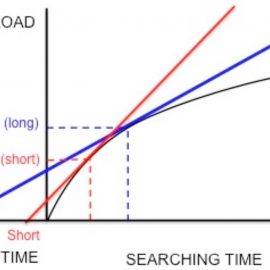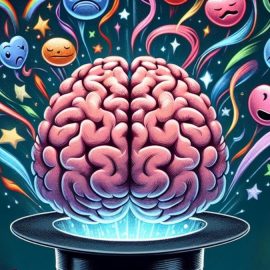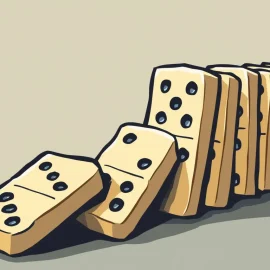

This article is an excerpt from the Shortform book guide to "Healing the Shame that Binds You" by John Bradshaw. Shortform has the world's best summaries and analyses of books you should be reading.
Like this article? Sign up for a free trial here.
What happens in your brain when shame becomes part of who you are? How does toxic shame alter your behavior and relationships?
When shame takes root in your identity, it creates a complex web of defense mechanisms, false personas, and destructive behaviors. Toxic shame can transform your thoughts, emotions, and actions in ways that may go unnoticed but significantly impact your daily life.
Keep reading to discover three effects of shame, as explained by John Bradshaw in his book Healing the Shame That Binds You.
The Effects of Shame
Bradshaw writes that, once shame becomes part of our identity, our brain has to work overtime to avoid it. It does this by altering our thoughts, feelings, and behaviors so we can avoid experiencing and addressing our shame, giving shame ultimate control over our lives. Bradshaw identifies three effects of shame when it has covert control over our minds.
Effect #1: Ego Defenses
First, internalized shame causes us to develop ego defenses. These defenses are behaviors that allow us to ignore or block out situations that might induce shame. Bradshaw says that, because our subconscious mind drives us to engage in these behaviors, we often don’t realize we’re doing them, or we don’t realize that they’re abnormal or harmful. Think of ego defenses as an autopilot mode that your brain turns on in certain situations to ensure you avoid experiencing or remembering shame.
Bradshaw explains that detachment is a common ego defense that comes in many forms. For instance, you might detach from your feelings so they don’t cause you shame. Or you might detach from your mind or body so that the person experiencing the shameful thoughts or emotions isn’t you—for example, if someone is yelling at you, you might retreat into your head and tune them out so that they’re not yelling at you, they’re just yelling at your body.
Another common ego defense is altering your feelings. According to Bradshaw, one way your brain might alter shameful feelings is by making you perceive them as something more tolerable—for example, if you’re ashamed of having romantic feelings toward someone, you might turn those feelings into curiosity or resentment instead. In a situation where you’re abused, you might alter your feelings by identifying with your abuser—this allows you to avoid the shame of being the victim.
One of the most common and detrimental ego defenses is addiction. Bradshaw explains that toxic shame is the root cause of all addictions and compulsions, such as substance addiction, food addiction, gambling, and sex addiction. Addiction is a form of detachment and altering your feelings—when you’re engaged in your addiction, you’re able to distract yourself from your shame and the pain it causes you.
Effect #2: False Self
Second, internalized shame manifests by forcing us to develop a false self. Bradshaw explains that, when toxic shame becomes part of our identity, it convinces us that our authentic self is shameful and unworthy; therefore, we disown our true self. As a result, we lose touch with our authentic needs and desires, and we must mold a false identity to guide our actions in different scenarios since we don’t have an authentic self to do so.
There are three “selves” that people with toxic shame build. First is the cultural self—our role in society. According to Bradshaw, this self is dictated by our “sex roles.” We strive to be the perfect embodiment of society’s concept of a man or woman.
Second is our self trajectory—the life path we plan out for ourselves. According to Bradshaw, this includes our career aspirations, values, and self-image. Since toxically shamed people are unable to connect to their authentic needs and desires, they must shape their goals and values based on external influences like parents, friends, or media.
Third is our relational self—the role we fill in our romantic and familial relationships. The role toxically shamed people play in adult relationships is usually the role they were taught to play as children due to their abandonment.
For example, a child who was abused and played the ghost role in their family will likely play a passive or submissive role in their adult relationships, failing to express their thoughts and feelings. They may also end up seeking a partner who abuses them in the same way they were abused as a child because that’s how they were taught to receive attention.
Effect #3: Shamelessness
Third, internalized shame causes us to develop behaviors that make us feel shameless. These behaviors are strategies that allow us to either a) feel we’re “correcting” our sources of shame, or b) rid ourselves of the shame by “transferring” it to other people. There are many types of shamelessness.
Bradshaw writes that many shameless behaviors stem from the effort to be impenetrable—a form of “correcting” our shame. Perfectionism is one example of this—if we’re perfect, we don’t have to worry about not being enough, and we can avoid shame. Another example is striving for power—if we’re more powerful than others, they can’t shame us. These behaviors often lead to the tendency to brag or remind others of our superiority—this ensures that everyone sees us as impenetrable and is distracted from anything that might be shameful about us.
Shamelessness as an attempt to correct shame may also manifest as being obsessively “moral” and “good.” For example, you might compulsively put others before yourself to cancel out shameful feelings of selfishness, or you might try to gain moral superiority over others.
Finally, shamelessness as an attempt to transfer shame to others often comes in the form of anger, blame, and acting out toward others. For instance, if we’re having shameful thoughts or feelings, we may offload them by accusing others of having those thoughts and feelings even if they don’t. For example, if we’re annoyed at someone, we might convince ourselves that they’re annoyed at us. Another form of shamelessness is outwardly accusing or getting angry at others for exhibiting thoughts, feelings, or behaviors we’re ashamed of.

———End of Preview———
Like what you just read? Read the rest of the world's best book summary and analysis of John Bradshaw's "Healing the Shame that Binds You" at Shortform.
Here's what you'll find in our full Healing the Shame that Binds You summary:
- How toxic shame develops and manifests in your life
- Why it’s important to externalize shame that’s internalized
- How to find happiness after expelling shame






